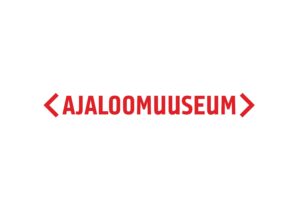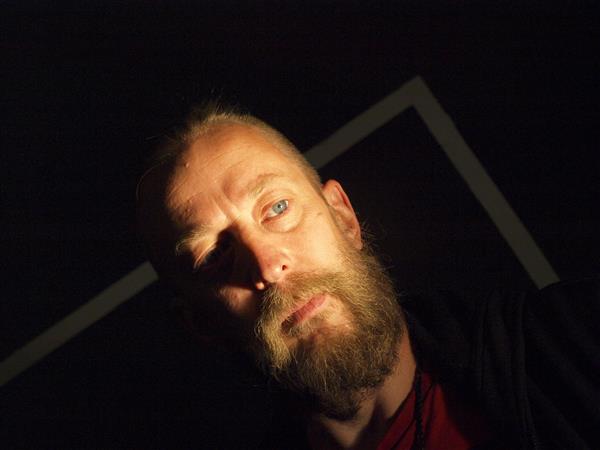Category: Uncategorized
The Estonian Academy of Music and Theatre is announcing additional admission for a small number of study places for the academic year 2024‒2025 in the following curricula:
Jazz Music – Percussion (Bachelor’s Studies, Master’s Studies)
Applications and other documents must be submitted by 19 August via e-mail to: vastuvott@eamt.ee.
Application form is here.
Entrance examination will take place on 23 August at 9.00 room D-311.
Heigo Rosin defends his doctoral thesis on 28 May at 14:30 room A-402 for the degree of Doctor of Philosophy (Music):
„Kaasaegse instrumentaalkontserdi mõtestamisest Erkki-Sven Tüüri „Magma” näitel – interpreedi vaade“
Supervisor: professor Kerri Kotta, PhD (EMTA)
Opponent: Mihhail Gerts, PhD (muusikas), Berliin
The doctoral thesis is available HERE and in print in the EAMT library.
Part of Summary:
In the doctoral thesis „Considerations on Modern Instrumental Concerto using Erkki-Sven Tüür’s „Magma” as an Example – an Interpreter’s View”, I addressed the challenges faced by soloists in performing contemporary instrumental concerto using Erkki-Sven Tüür’s Symphony No. 4 „Magma” as an example. The thesis aimed to define and describe the functions of the soloist.
The thesis consists of an introduction, four chapters, and a conclusion. Drawing on existing literature, I described Tüür’s musical style and development and the characteristics of „Magma”. Through full score analysis, I identified various relationships between the musical material performed by the soloist and that performed by the orchestra, referring to them as the soloist’s functions. Semi-structured interviews were conducted to understand how composer Erkki-Sven
Tüür and other performers of „Magma” interpret the work. Finally, I made general observations when considering „Magma” to ensure high-level artistic performance. The materials used in writing the thesis included the score of „Magma” , articles by Kerri Kotta and Merike Vaitmaa, as well as interviews with Erkki-Sven Tüür, Evelyn Glennie, Guntars Freibergs, Risto Joost, and Kristjan Järvi.
Vittoria Ecclesia defends her doctoral thesis on 4 June at 16:00 room D-511 for the degree of Doctor of Philosophy (Music):
“Practice Beyond Boundaries: Enhancing Musicianship through Historical Clarinet Affordances”
Supervisors: professor Toomas Siitan, PhD (EAMT), professor Peeter Sarapuu, PhD (EAMT)
Opponent: professor Mieko Kanno, Sibelius Academy / University of the Arts Helsinki
The doctoral thesis is available HERE and in print in the EAMT library.
Abstract:
The thesis “Practice Beyond Boundaries: Enhancing Musicianship through Historical Clarinet
Affordances” (“Piire ületav harjutamine: muusikalise meisterlikkuse arendamine ajaloolise klarneti pakutavate võimaluste kaudu”) is part of a creative research doctoral project and it explores how practice and performance on modern clarinet are affected by the exploration of musical affordances on historical clarinet. The concept of affordances identifies the possibilities of action offered by an object to a subject interacting with it. The historical clarinet considered is a 13-keyed instrument, developed by the clarinettist and composer Iwan Müller at the beginning of the 19th Century. The instrument represented a major breakthrough in the history of the clarinet, influencing its contemporaries and the players to come. While the initial interest towards this topic sparked from its history, in this research project Müller’s clarinet is not used as a historical instrument. It is taken into a modern context, and explored in practice sessions alongside its modern relative following a hybrid methodology.
The practice process is organised following the principles of autobiographic design. This method, born in the field of human-computer interaction design, is used here as a support to organize a structured yet flexible series of practice sessions to explore the historical clarinet. The process is documented through a practical journal, which is then analysed following the principles of thematic analysis, identifying recurring relevant themes emerging in the practice. Finally, the whole process falls under an autoethnographic framework, to take into account the self of the researcher in the identification and later application of musical affordances.
The process led to the identification of five main thematic areas encompassing different musical
affordances of historical clarinet: technique, air and sound production, articulation, intonation, and interpretation and phrasing. In each area, the historical clarinet afforded different actions than the modern one, showing its potential as an individual instrument. The results showed how musical affordances could be applied in everyday practice, and how they influenced modern clarinet practice not only in its technical aspects but also more abstractly, in the mindset and approach to music. A similar process of exploration and experimentation could be followed on other instruments, breaking the boundaries of traditional practice on a broader level.
Consultations for applicants for doctoral studies in music and dramatic art with regard to the preparation of research projects will be held on:
15 April
12.00 Zoom (in English)
17.30 A-202 at EAMT (in Estonian and English)
18 April
15.00–16.00 A-202 at EAMT (in Estonian and English)
25 April
14.00 Zoom (in English)
We ask participants to register no later than 17:00 the day before the consultation by calling 6675 709 or by e-mail at: margit.vosa@eamt.ee.
Well-functioning voice is important to all of us. For many, their voice is an invaluable tool in their everyday professional life.
The tradition of annually celebrating the WVD started in Brazil about a quarter of a century ago. The legendary Swedish voice researcher, Professor Johan Sundberg, has been a promoter of this movement worldwide since 2012. The idea is to initiate on this day various activities which value the human voice and spread information that helps to use it better and healthier.
This year, the Estonian Academy of Music and Theatre offers the possibility to measure your Voice Range Profile (VRP) for all who are interested (singers, but also others). VRP shows the pitch range of the voice together with the dynamic range for each note. VRP enables people to receive information about their singing voice category and vocal skill level. Additionally, speaking voice range can be assessed by reading a text.
Measuring the VRP should take approximately 30 minutes, and the result will be printed onto paper.
Individuals interested in measuring their VRP can do so on 16 April 2024, between 11 am and 4 pm. To preregister a time, please contact Professor Allan Vurma (allan.vurma@eamt.ee; mob 51935932).
Please also see the international webpage: worldvoiceday.org
Within the framework of the European project E4TLI (Education for Technological Literacy and Inclusion) we invite teachers from every discipline to join the Free and certified online seminar on live streaming.
Join the lectures and discussions of this 4-day webinar to address topics like:
- What is streaming and what kind of software and platforms are there for streaming?
- What are the aspects to keep in mind when using streaming for education?
- How can teachers engage students while streaming?
- How could live streaming be integrated into creative/artistic work?
- What could we consider as strategies for streaming in the context of performances and events?
The participants of the seminar will gain knowledge on how to provide accessible content using live streaming technology in pedagogical or creative work. The participants will also gain insight into the effects and requirements of live streaming in teaching and learning processes and become familiar with the strategic choices with streaming in performances and events.
The seminar is organised by the Cultural Management MA programme of the Estonian Academy of Music and Theatre.
To get a participation certificate, please fill in the Attendance sheet and send the signed version back via email: culturalmanagement@eamt.ee
In case of any questions, please contact culturalmanagement@eamt.ee


We invite you to participate in a listening experiment of the joint research project of the Estonian Academy of Music and Theatre and Tallinn University of Technology titled “The possibilities of vocalists in improving text comprehensibility – issues and scientific basis”, which will take place on 13 February from 16:30 to 18:00 in the Great Hall of EAMT(Tatari 13).
The research aims to test the identification of consonants in sung text in a real acoustic situation. Participants will sit in the hall, listen to recorded sound stimuli, and note down the heard consonants. As background information, we ask for the participant’s age, gender, and native language. For practical purposes, we also collect participants’ contact information. All data will be anonymized during the analysis. People aged 16–70 are welcome to participate. After the completion of the study, participants will be invited to a coffee table.
The research is funded by the Estonian Research Council, and ethical committee approval has been obtained for it. All participants will be entered into a draw to win 20 tickets to the AHHAA Science Centre and 20 tickets to the Estonian History Museum, of which the Theatre and Music Museum is a part. The Museum of Theatre and Music celebrates its 100th birthday on 22 March and the History Museum will celebrate its 160th birthday on 19 February.
Please pre-register here.
Additional information:
Allan Vurma, Professor of Musicology
allan.vurma@eamt.ee



Erik Alalooga defends his doctoral thesis on 21 December at 16:30 room A-402 for the degree of Doctor of Philosophy (Theatre):
“Developing a systemic method of tinkering for object theatre”
Supervisor: Madli Pesti, PhD (EAMT)
Opponent: Raivo Kelomees, PhD (EAA)
The doctoral thesis is available HERE and in print in the EAMT library.
Summary:
In my artistic research entitled „Developing a systemic method of tinkering for object theatre“, I analysed the situation in which a performer makes personal stage partners. Tinkering here means making art objects from random everyday objects and materials from surrounding environment. I also explored how such a model influences dramaturgical creation and how the self-made object and the performer’s interaction with it is positioned in the contemporary theatrical landscape.
The personal starting point of the work was the need to systematically and analytically study my long experience of tinkering and teaching. It allows to apply the new knowledge gained through creative activities. Although I have consistently emphasized in my research the functioning of tinkering with the support of minimal formulation, regular analyses of the overall process and outcomes are necessary for qualitative development. I also felt that my background as a sculptor and installation artist offered new point of view to the material approach of object theatre.
The research problems stemmed from the perceived fact that tinkering, as a creative engagement with the surrounding material environment, is still a sparsely covered area in the educational process. This, in turn, has an impact on the attitude of young people with creative interests towards the use of technology in the artistic process. The over-theoretical nature of real subjects increases the distance with practical everyday life. People do not become aware of their personal capacity to manipulate material space. A hostile relationship or learned helplessness is constructed in its place. According to a common cliché, the conceptual idea of a work of art is still considered, to be „superior“ to the „shallow“ technical realisation. This in turn gives rise to a further problem – the too facile entrusting of the making of art objects to a specialist for technical realisation. This often means that the artist’s personal touch is lost. The problems described may sound speculative for a research paper, but I assure you that they are the result of long-term observation. I see a huge potential in bringing the practical relationship with the material environment to a more adequate basis.
Tinkering is usually considered as an intuitive artistic activity. The aim of my research was to create a systematic method of tinkering for the object theatre production process. The method should allow the performer with no previous experience to create personal performance partners, which in my artistic research appear as mechanical sound machines.

On 24 October, an innovative doctoral thesis was defended at the Estonian Academy of Music and Theatre: for the first time in Estonia, a doctoral-level study on the dramaturgy of virtual reality was written. Its author, junior researcher Ana Victoria Falcón Araujo, addressed the question of how writers can create plays that are intended to be staged (partly) in virtual reality. The supervisors were senior researcher Madli Pesti (pictured with Ana Falcón) and dramaturg Marion Jõepera, PhD. The opponent was Ágnes Bakk, Lead Researcher at the Moholy-Nagy University of Art and Design, Budapest.
Falcon’s interdisciplinary PhD thesis, “Drafting the VR Play: Exploring Extended Reality Theater to Propose a Method for Virtual Reality Playwriting”, brings together early forms of VR playwriting, existing writing conventions, academic literature and artistic experimentation. As a result of the work, the author highlights aspects that writers should take into account when writing a play to be staged in virtual reality. These are the user’s sense of presence in the virtual space (immersion), interactivity, point of view, and the technology used (such as the devices and accessories attached to the user’s head). The doctoral thesis explains and explores the development, concepts and practical uses of virtual reality, a highly topical and constantly evolving field.
 Ana Victoria Falcón Araujo and supervisor Madli Pesti
Ana Victoria Falcón Araujo and supervisor Madli Pesti





